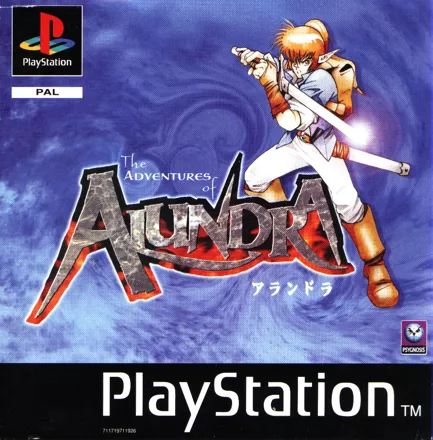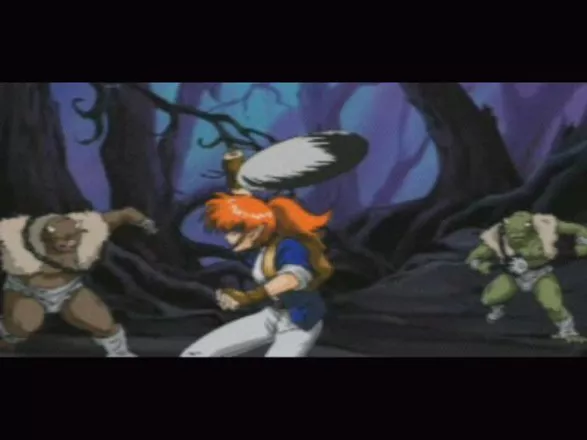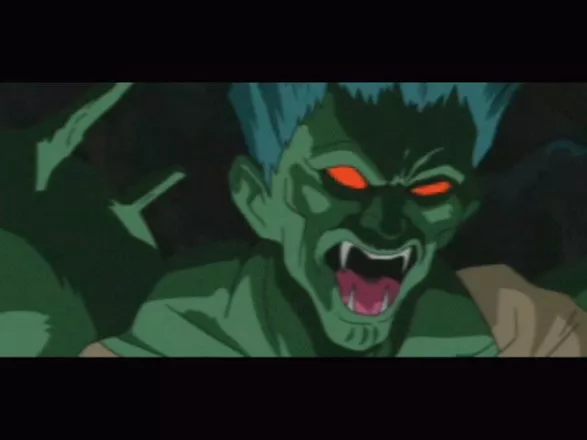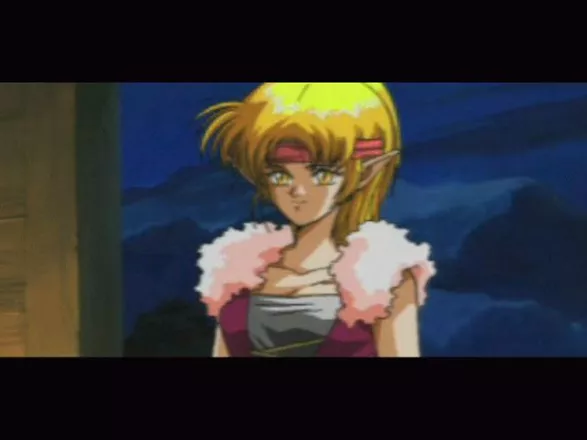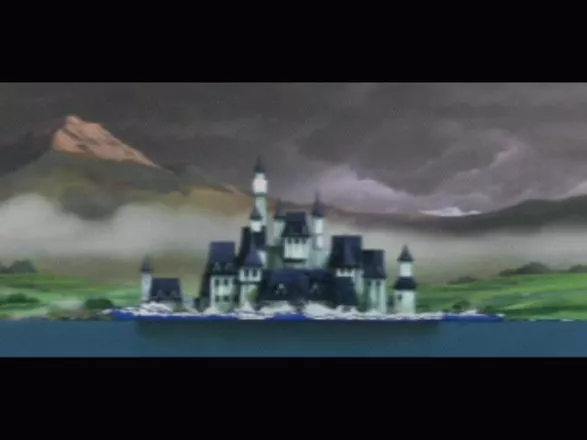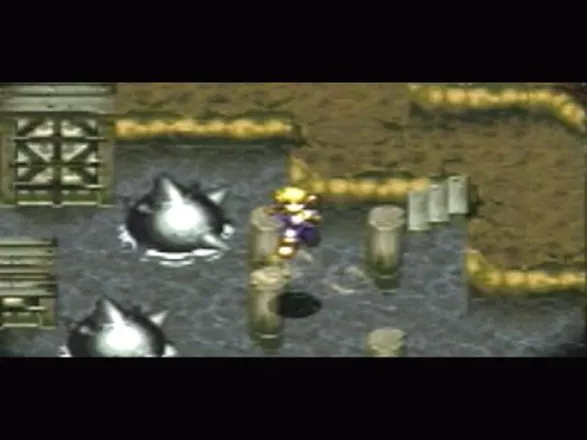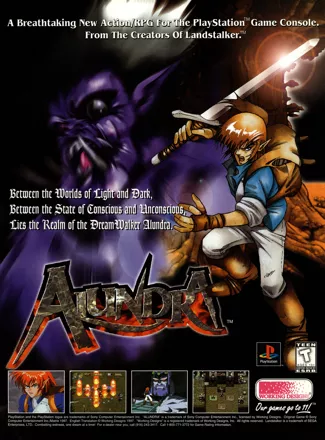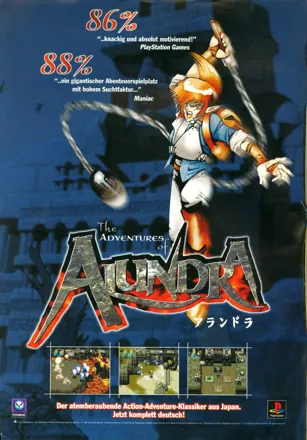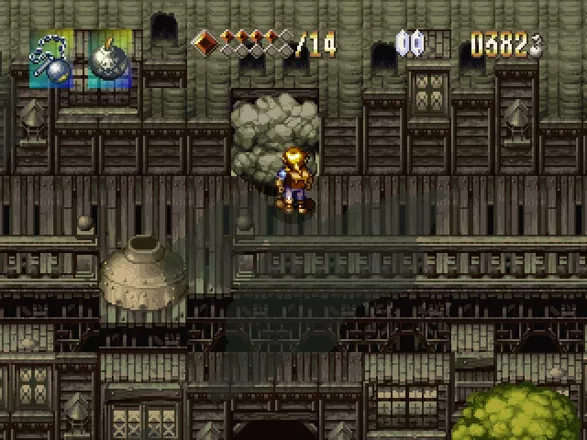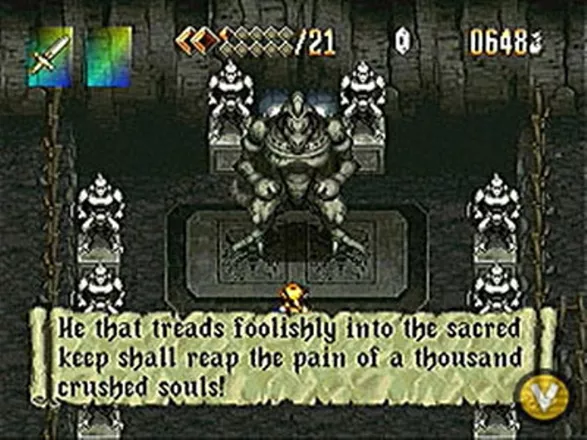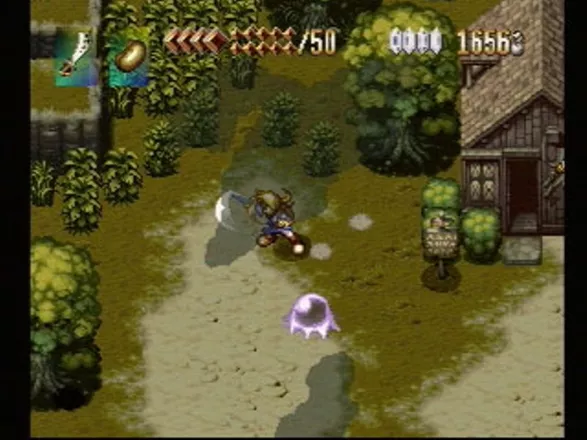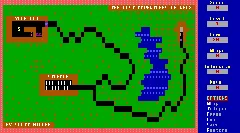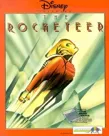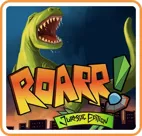Alundra
Description official descriptions
Alundra is a boy who can step into other people's dreams. His own dreams tell him to go to the village Inoa. The ship on which Alundra is coming to the village goes down, but Alundra himself is washed up on a beach near the village. There, a blacksmith Jess takes care of him and treats him like his own son. But Alundra, stepping into the dreams of the village people, understands there's a danger somewhere. The people have horrible nightmares, and only Alundra can find out what they mean...
Alundra is an action game with light RPG elements, somewhat similar to the Zelda series. It uses real-time combat and includes some platforming and environmental puzzles. A big part of the game is spent in dungeons (reached through an overhead map), where the player has to solve puzzles in order to proceed. During the course of the game, various new items, spells and special attacks are found which have to be used to solve new puzzles or get to previously unreachable places.
Spellings
- アランドラ - Japanese spelling
Groups +
Screenshots
Promos
Credits (PlayStation version)
41 People (35 developers, 6 thanks) · View all
| Director | |
| Translation | |
| Sales | |
| Manual | |
| Continuity | |
| Special thanks |
|
| Director | |
| Character Design | |
| Map Design | |
| Event Program | |
| Music | |
| Sound Director | |
| Assistant Sound Director | |
| Game Design | |
| Story | |
| Main Program | |
| Enemy Action Program | |
| [ full credits ] | |
Reviews
Critics
Average score: 85% (based on 33 ratings)
Players
Average score: 3.9 out of 5 (based on 50 ratings with 1 reviews)
Brilliant literary epic, despite the graphics
The Good
The storyline is paramount... it may look and feel like Zelda, but the developers certainly invested more in the design of the story.
It is no typical storyline, do know... it is dark, and despite being fantastic (that is, relies on pure fantasy - the delving into dreams etc.) it also succeeds in combining realism along with the fiction. People die, but they're not statistics like in some FPS... they all have evolving personalities, so the loss of any one of them usually has a personal resonance (although, more often than not the ones Alundra succeeds in saving (from their deadly nightmares) turn out to be not so interesting and deep, which further tugs on the attachments the main character had with those who do die).
I must say that there's a particularly beautiful part of the game (at about the middle of it) where, despite the limited capabilities of the graphics, the 'dungeon' (someone's dream, actually) is almost Elysian, albeit harbouring the most horrid of the dreamer's memories (the designers still ought to be commended for how artistic the game ended up looking; most other games would use the same 'props' in houses and dungeons etc. e.g. - but if one notices it, Alundra's graphics are fairly unique: the last dungeon-castle is especially beautiful, too).
It is almost science fiction, although it still remains, ultimately, a kind of artistic epic. Particularly noteworthy also is the psychology intrinsic in the game and its interesting views on religion.
The Bad
Alundra himself is, unfortunately, not very developed at all beyond his status as a 'Releaser' (most knowledgeable people in the game call him that, although as a concept it's not really fully explained, either), and like some narratives opt for (Serge in Chrono Cross e.g.) he is, at best, a silent protagonist, although other characters sometimes attempt to infer his feelings or thoughts. This, nonetheless, is very much redeemed through the development of the many other characters... so, it could have been a deliberate choice on the part of the game's writers.
The puzzles were also... at times, at least, very difficult indeed, and often made even more difficult due to the minute reliance on graphics (having to push poles just a bit further than what one would reasonably infer is possible with the available graphics, e.g.) - this also might, I assumed, interfere with gamers' enjoyment of the story itself, since puzzles may often stall progress.
The Bottom Line
Certainly a mature video game dabbling in a medley of genres... if the puzzles don't stump gamers, then the platforming might. But the storyline is more than rewarding.
PlayStation · by Ymir (18) · 2014
Trivia
Awards
- Electronic Gaming Monthly
- February 1998 (Issue 103) - Game of the Month
- March 1998 (Issue 104) - RPG Game of the Year Runner-Up
- Interactive Achievement Awards (Academy of Interactive Arts and Sciences)
- 1998 – Console Role Playing Game of the Year – Nominated
Analytics
Upgrade to MobyPro to view research rankings!
Related Sites +
-
Alundra
Page with all things Alundra.
Identifiers +
Contribute
Are you familiar with this game? Help document and preserve this entry in video game history! If your contribution is approved, you will earn points and be credited as a contributor.
Contributors to this Entry
Game added by Unicorn Lynx.
PlayStation 3, PSP added by Caelestis. PS Vita added by GTramp.
Additional contributors: Apogee IV, Alaka, Havoc Crow, Parf.
Game added March 13, 2002. Last modified December 7, 2023.
